
Rick Grimes has been a central figure in The Walking Dead since its inception, and his farewell scene shares remarkable similarities with his introduction in the pilot episode. Although he held the title of the main character, Rick did not remain until the very end; Andrew Lincoln concluded his journey in the series during season 9. Subsequently, he made a return in early 2024 for the spinoff series The Ones Who Live. Yet, his poignant performance in the episode titled “What Comes After”marks his last significant appearance in the main series, aside from a brief cameo in the season 11 finale, which renders it an unforgettable moment.
Rick’s ultimate act of defiance against insurmountable odds solidified a fitting conclusion to his journey. While fans were elated by his eventual survival and return, his exit in season 9 stands as a heartfelt homage to his character. This moment encapsulates not only his courageous spirit and leadership qualities but also resonates as one of Rick Grimes’ standout moments throughout the series. Although his initial and final episodes differ vastly in context, they share a pivotal element that contributed significantly to his iconic status.
Rick’s Initial and Final Scenes in The Walking Dead Involve Remarkable Survival

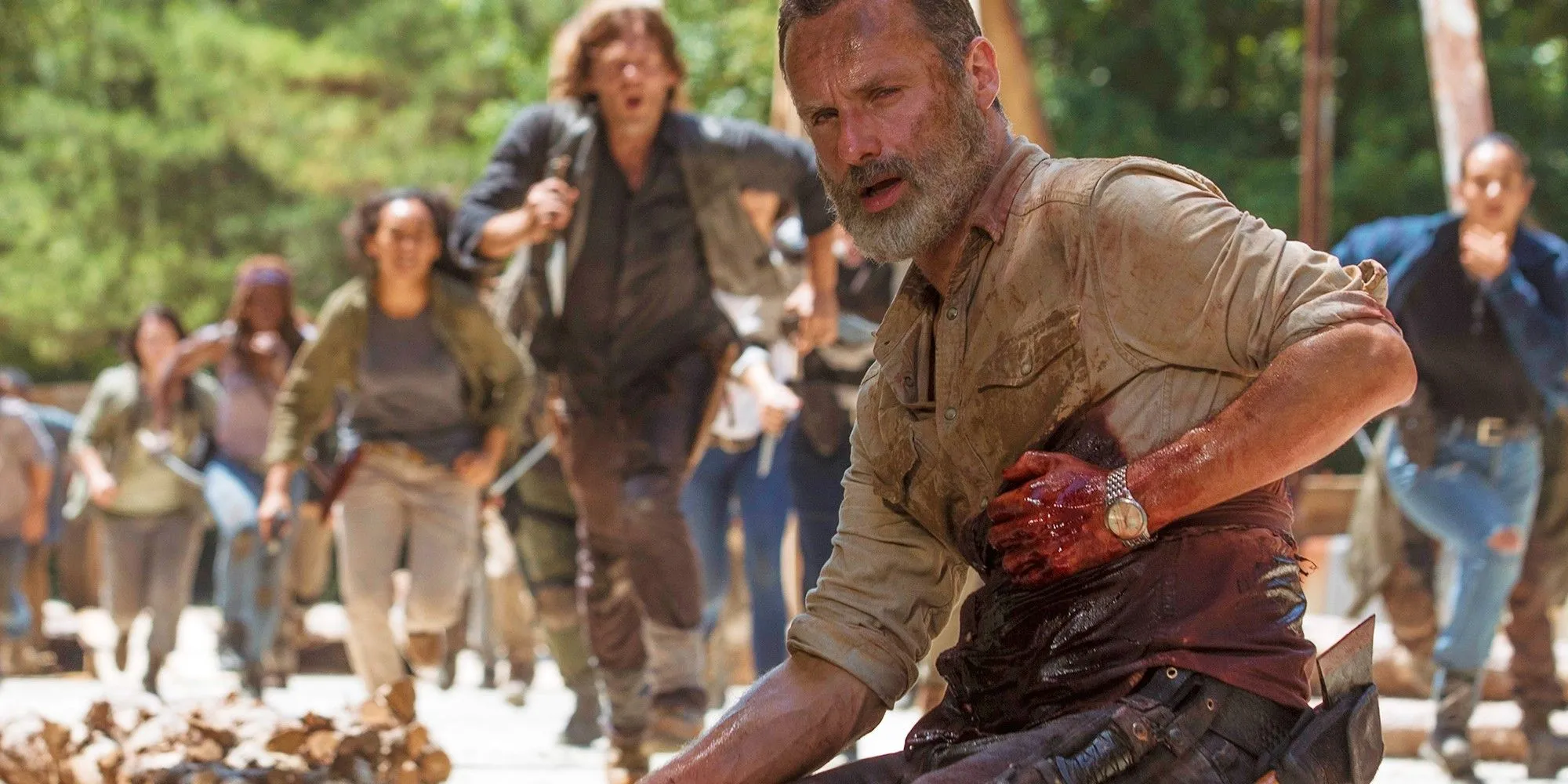
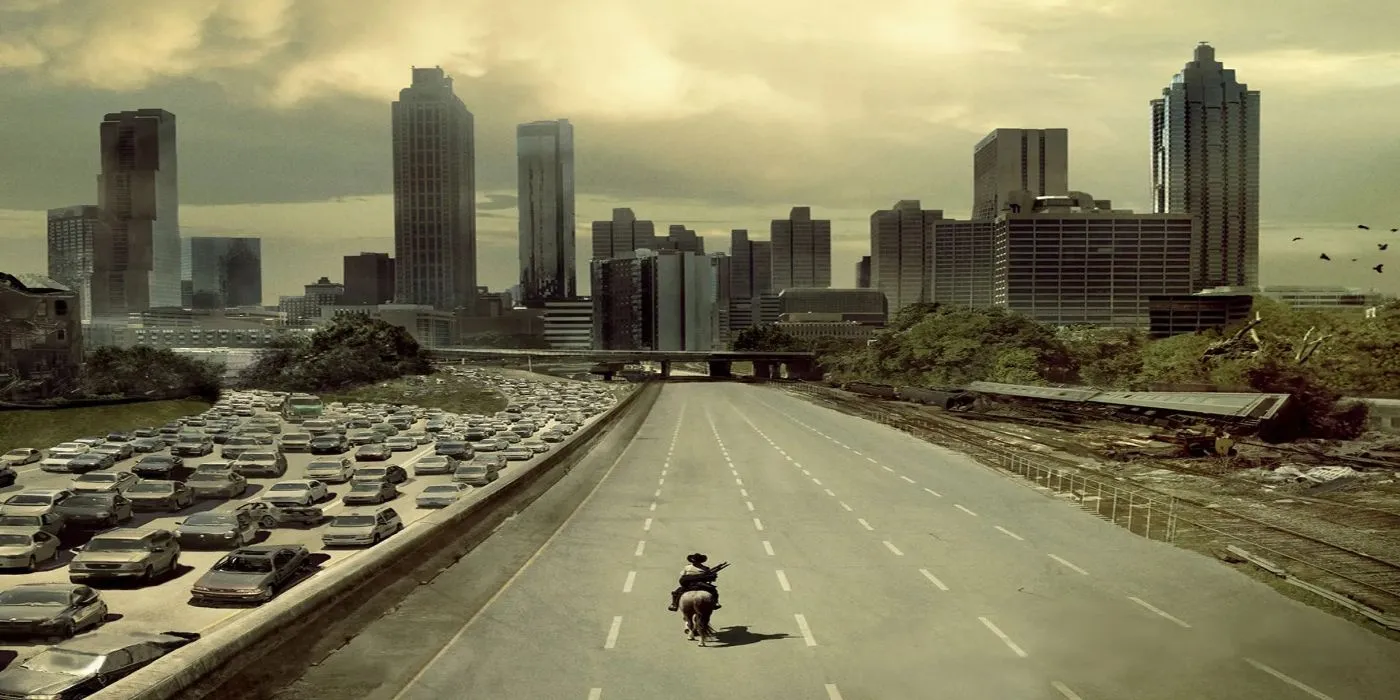

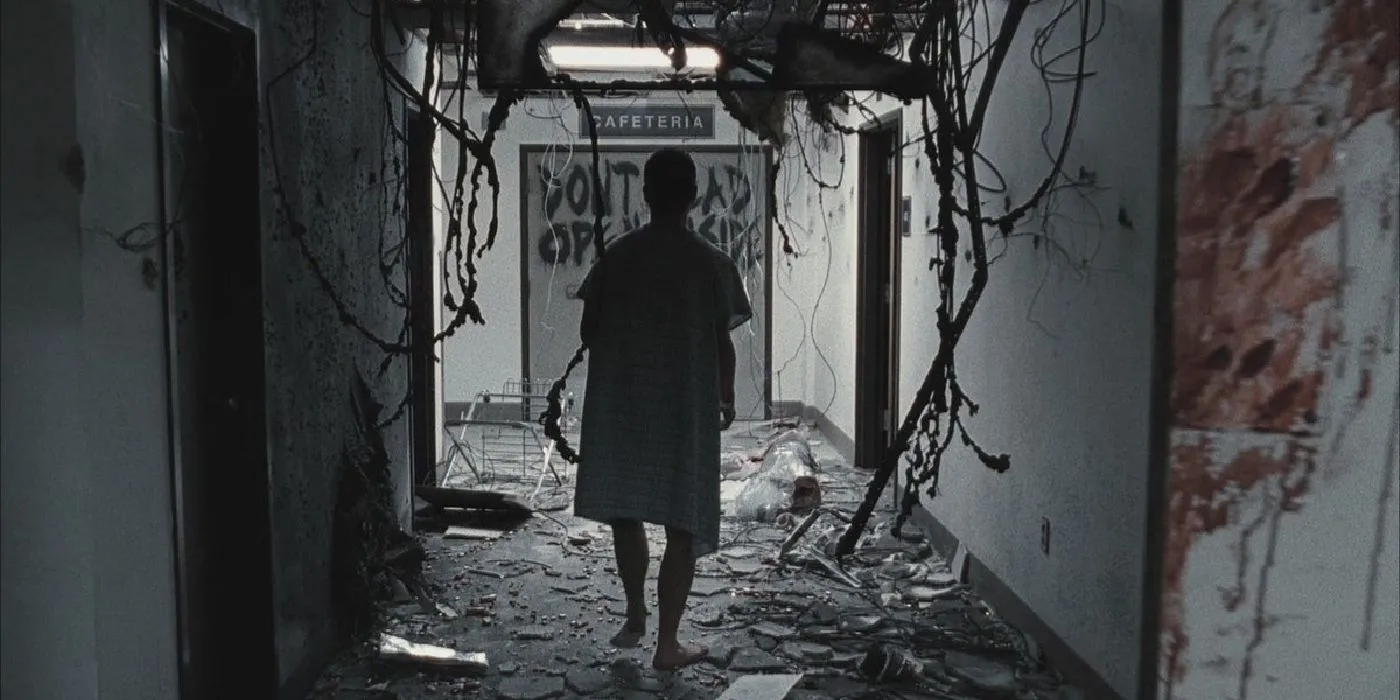
Despite the stark differences between Rick’s first and last scenes in The Walking Dead, both instances highlight his miraculous survivability in the face of dire challenges. The moment Rick awakens from a coma in an empty hospital not only sets the tone for the series but also embodies the terrors of a post-apocalyptic world. His initial vulnerability and profound isolation serve to emphasize the gravity of the apocalypse, particularly for someone who is oblivious to the catastrophic changes around him. The odds of him surviving during this phase seemed unthinkably low.
Throughout the series, Rick faces numerous injuries and brushes with mortality, but his final episode showcases an unprecedented level of resilience.
Waking from a coma without immediate medical attention is a miracle in itself, especially since he likely lacked assistance for several weeks. His journey to return home, marked by sheer determination, signaled his transformation into one of the deadliest characters in The Walking Dead. Rick’s struggles with injuries have defined his character, but his last episode exemplifies his most dramatic moment of survival yet.
In a courageous effort to protect his community, Rick rides a horse to divert a horde away from their settlement. However, when he stumbles upon another group of zombies, his horse becomes frightened, leading to a harrowing fall and an impalement. Although he manages to extricate himself and remount his horse, he loses consciousness, signalling imminent danger. Miraculously, he avoids falling off, eventually reaching a bridge, where he sacrifices himself by detonating explosives, all while somehow surviving the chaos.
Rick’s Opening and Exit Scenes Illuminate His Character’s Essence in The Walking Dead
The Protagonist’s Grit and Determination: Essential to His Character Arc
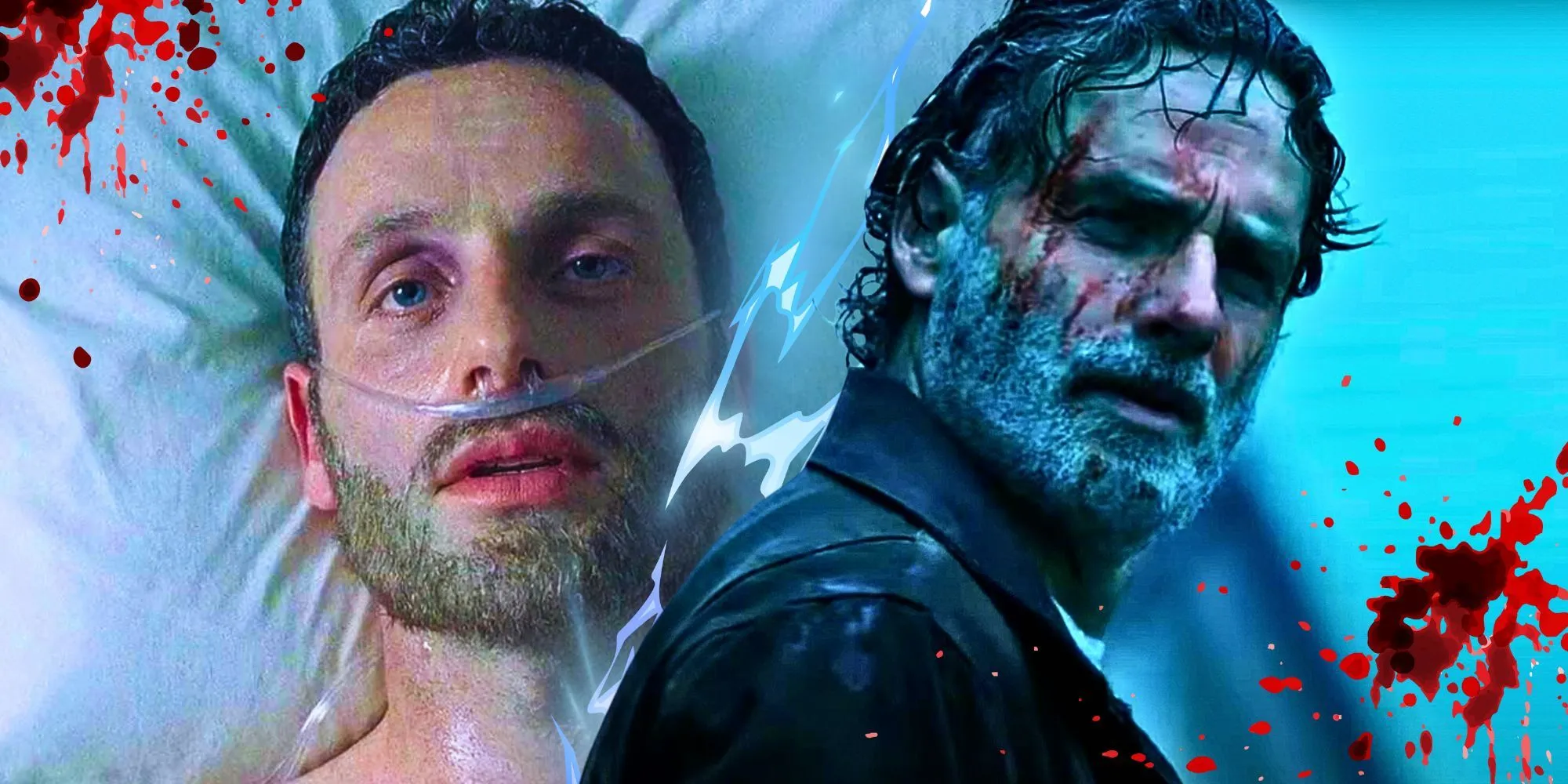
Surviving two seemingly fatal scenarios encapsulates the essence of Rick’s character, emphasizing his tenacity and resolve. Despite experiencing profound loss and confronting ruthless antagonists, Rick navigates through dark narratives in The Walking Dead, yet he consistently emerges as a dependable leader. His resilience against adversities underscores the power of his character, evidenced in both his debut scene and his profound exit from the series.
Where many might have succumbed to despair after waking from a coma, Rick demonstrated unparalleled strength as he fought to reach his family. Additionally, his effort to protect those he loves at the bridge speaks volumes of his unwavering commitment and resolve. Though Rick faced monumental failures throughout his journey, these did not define him, establishing him as the quintessential survivor of the franchise.
Rick’s Two Miraculous Escapes in The Walking Dead Are Highly Unlikely
The Unlikelihood of Surviving Any Extreme Situations
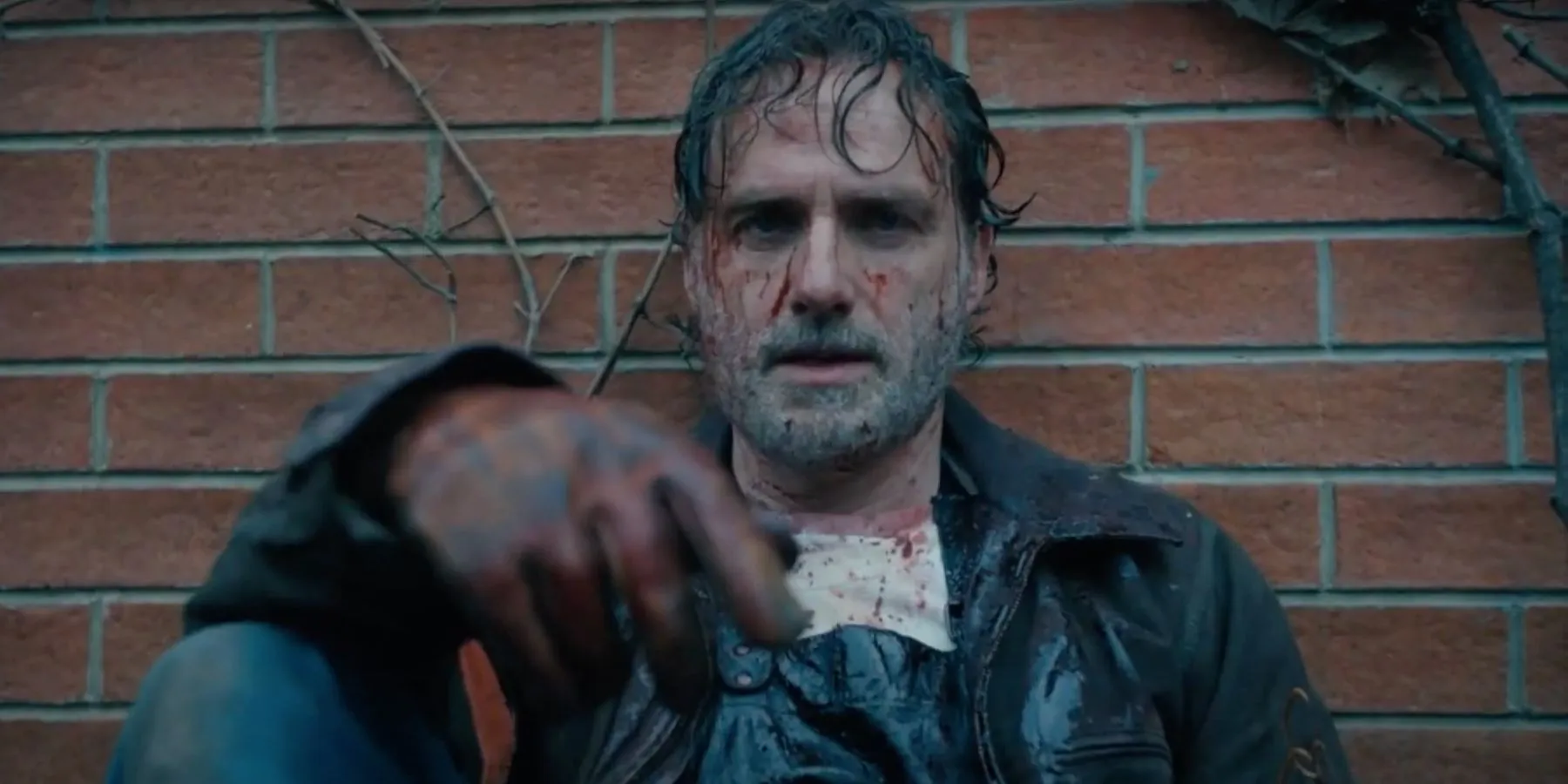
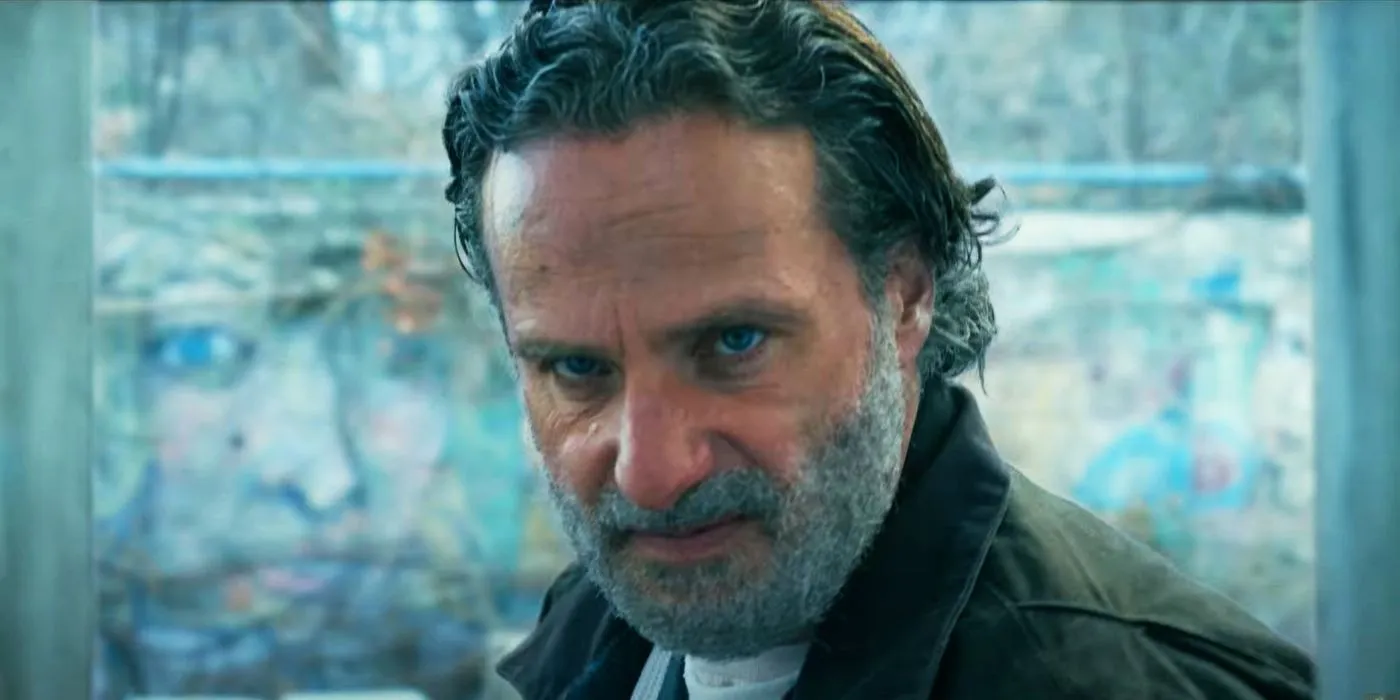
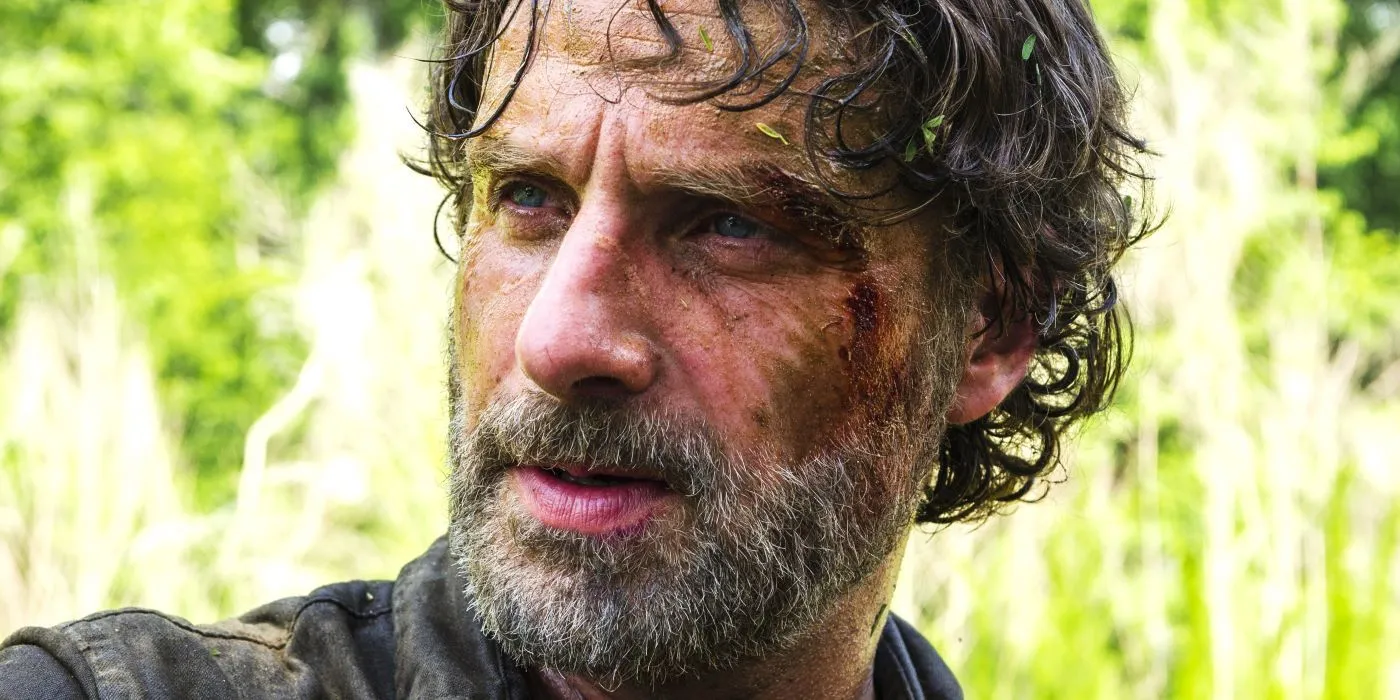
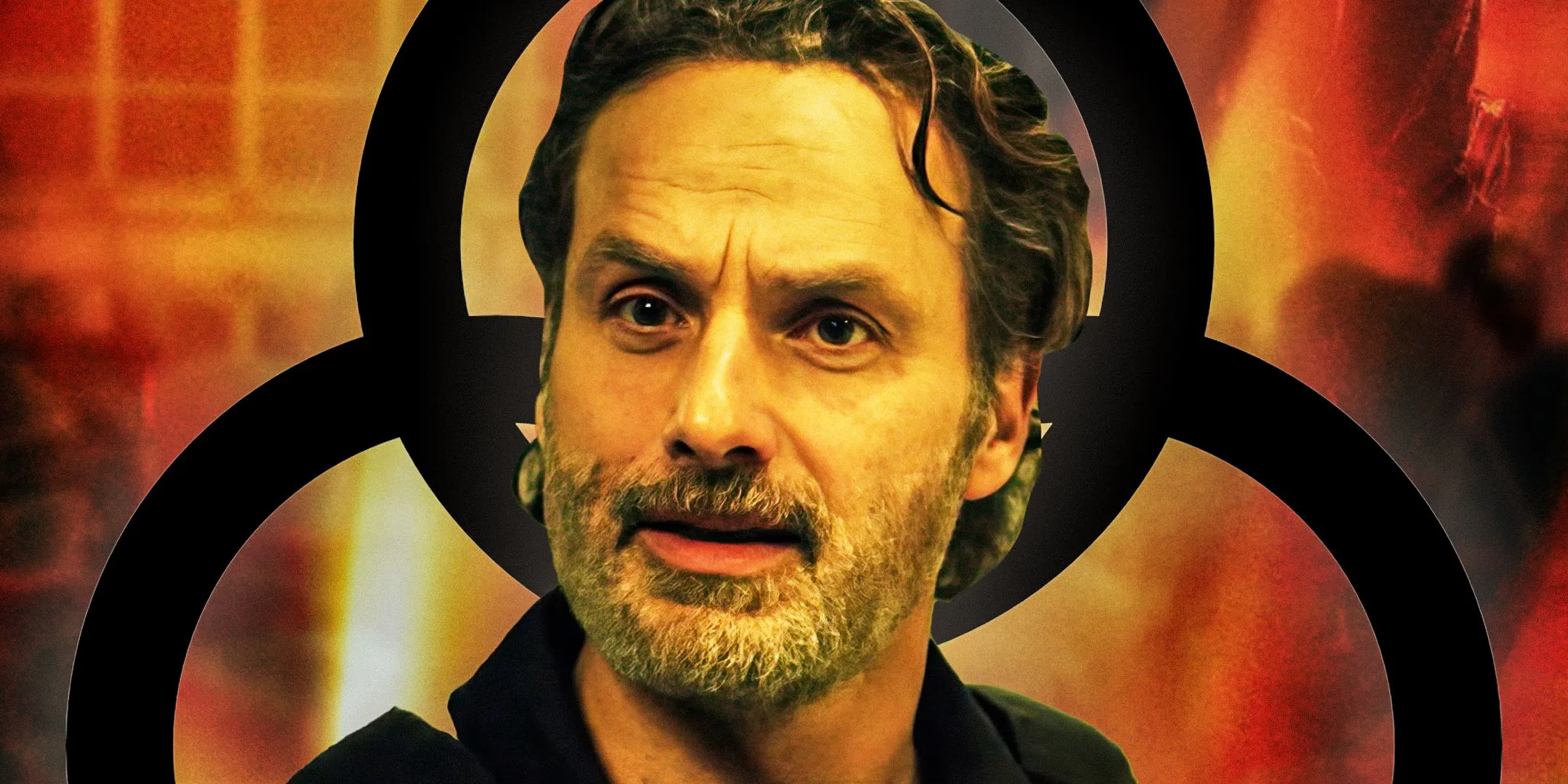
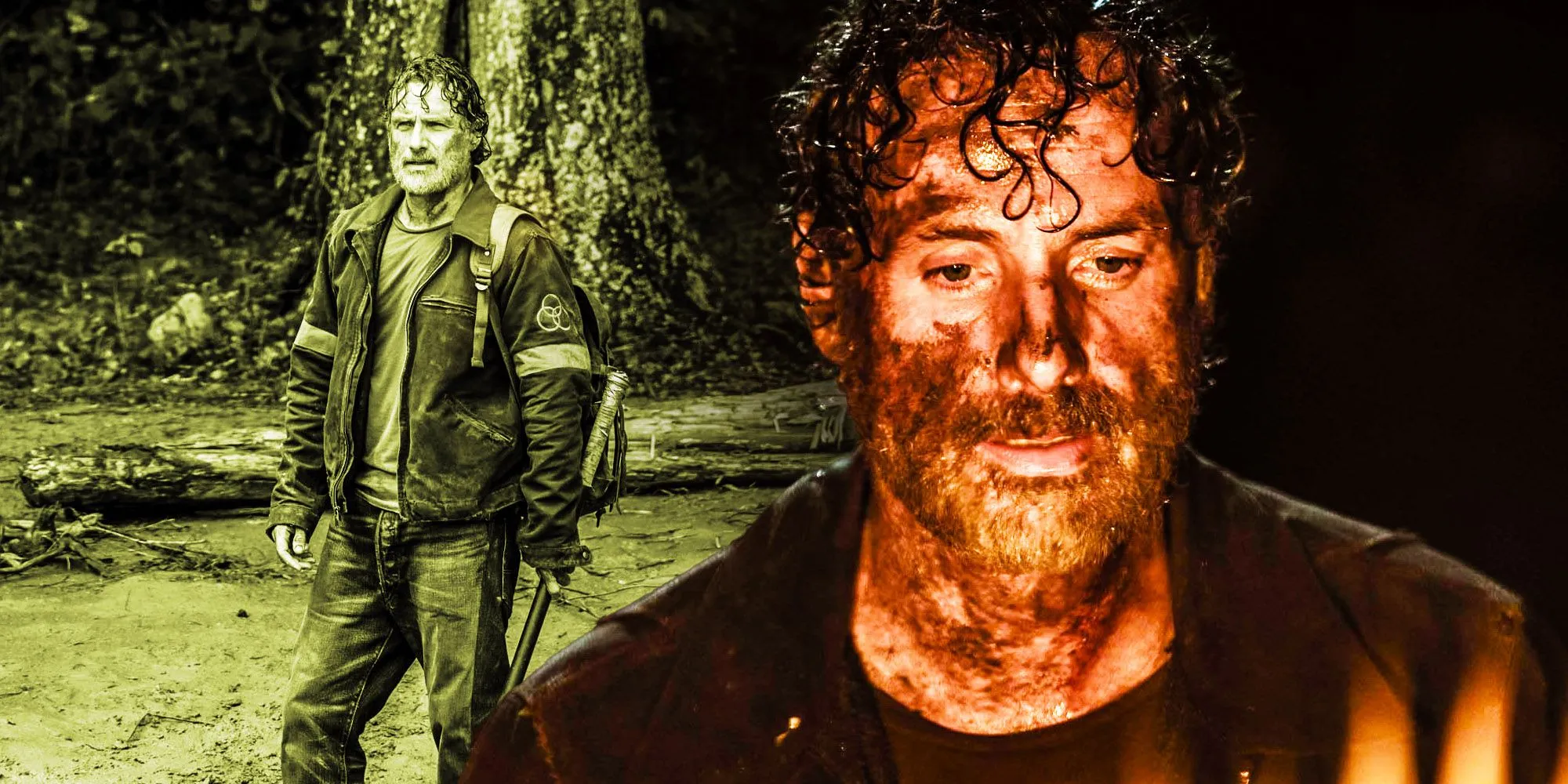
While Rick’s survival in both the introduction and conclusion of The Walking Dead is remarkable, these scenarios stretch the limits of realism. The duration of Rick’s coma and the extent of the apocalypse during his slumber are never clarified. However, given the assumption that zombies roamed freely for weeks, the likelihood of his survival seems implausible. He would have required consistent medical attention, and even though a web series hinted that someone remained behind to care for him, this person would have needed to act quickly before Rick regained consciousness.
Moreover, while Rick’s recovery appears swift and relatively free from zombie encounters, his exit is even less feasible. The strength required to remove himself from the impalement, coupled with the avoidance of severe blood loss or falling, seems improbable. Despite being rescued by Jadis and aided by the CRM’s presumably talented medical staff, Rick’s survival following such extreme injuries raises eyebrows. Nevertheless, these extraordinary escapes are precisely why Rick’s narrative in The Walking Dead remains so compelling and engaging.




Leave a Reply ▼